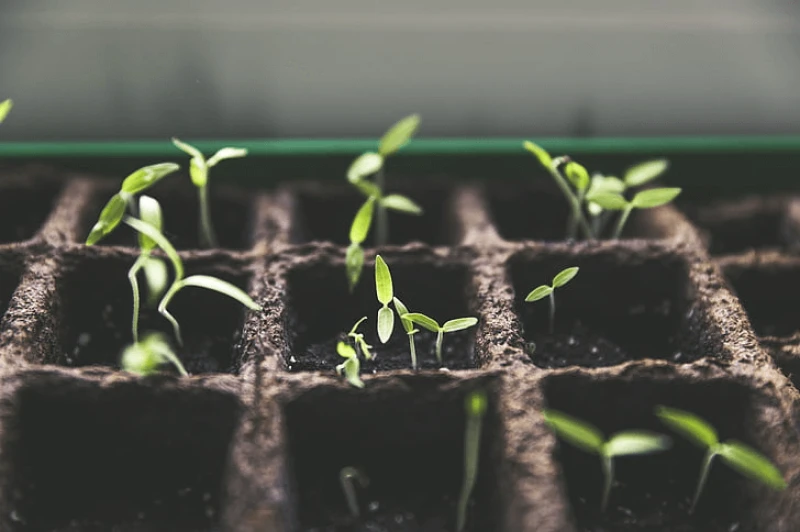Viewpoint: Finding optimal crop traits using traditional breeding is like finding ‘a needle in a haystack’. Here’s how precision breeding can help
Viewpoint: Finding optimal crop traits using traditional breeding is like finding ‘a needle in a haystack’. Here’s how precision breeding can help

Finding the best genetic characteristics of a crop one season at a time through traditional plant breeding was like finding, “a needle in a haystack,” according to Michael Kovach, head of North American hybrid product development for Bayer.
But with technological developments that make precision breeding now possible along with the use of greenhouses to create multiple crop seasons in a single year, researchers can accelerate plant breeding to deliver more benefits to farmers and consumers.
Bayer plant researchers also utilize seed chipping and genotyping to test every seed before it is planted in research trials. The process involves removing a small chip from each seed and extracting its DNA.
“We can screen millions of individual seeds. Before it germinates, we can tell what the potential will be,” said Maria Monteros, North American varietal breeding lead at Bayer.
…
The combination of all the accelerated plant breeding techniques shortens the time it takes to develop a new crop trait from about seven to eight years down to less than five years in the future pipeline, he noted. This does not count the regulatory process.
Bayer invests about $2.6 billion annually for ag research and development. Advancements in crop breeding allow farmers to produce more on less land and with fewer resources, which helps the planet, Monteros said.
This is an excerpt. Read the original post here
 | Videos | More... |

Video: Nuclear energy will destroy us? Global warming is an existential threat? Chemicals are massacring bees? Donate to the Green Industrial Complex!
 | Bees & Pollinators | More... |

GLP podcast: Science journalism is a mess. Here’s how to fix it

Mosquito massacre: Can we safely tackle malaria with a CRISPR gene drive?

Are we facing an ‘Insect Apocalypse’ caused by ‘intensive, industrial’ farming and agricultural chemicals? The media say yes; Science says ‘no’
 | Infographics | More... |

Infographic: Global regulatory and health research agencies on whether glyphosate causes cancer
 | GMO FAQs | More... |

Why is there controversy over GMO foods but not GMO drugs?

How are GMOs labeled around the world?

How does genetic engineering differ from conventional breeding?
 | GLP Profiles | More... |

Alex Jones: Right-wing conspiracy theorist stokes fear of GMOs, pesticides to sell ‘health supplements’





 Viewpoint — Fact checking MAHA mythmakers: How wellness influencers and RFK, Jr. undermine American science and health
Viewpoint — Fact checking MAHA mythmakers: How wellness influencers and RFK, Jr. undermine American science and health Viewpoint: Video — Big Solar is gobbling up productive agricultural land and hurting farmers yet providing little energy or sustainabilty gains
Viewpoint: Video — Big Solar is gobbling up productive agricultural land and hurting farmers yet providing little energy or sustainabilty gains Fighting deforestation with CO2: Biotechnology breakthrough creates sustainable palm oil alternative for cosmetics
Fighting deforestation with CO2: Biotechnology breakthrough creates sustainable palm oil alternative for cosmetics Trust issues: What happens when therapists use ChatGPT?
Trust issues: What happens when therapists use ChatGPT? California, Washington, Oregon forge immunization alliance to safeguard vaccine access against federal undermining
California, Washington, Oregon forge immunization alliance to safeguard vaccine access against federal undermining 30-year-old tomato line shows genetic resistance to devastating virus
30-year-old tomato line shows genetic resistance to devastating virus The free-range chicken dilemma: Better for birds, but with substantial costs
The free-range chicken dilemma: Better for birds, but with substantial costs ‘You have to treat the brain first’: Rethinking chronic pain with Sanjay Gupta
‘You have to treat the brain first’: Rethinking chronic pain with Sanjay Gupta
